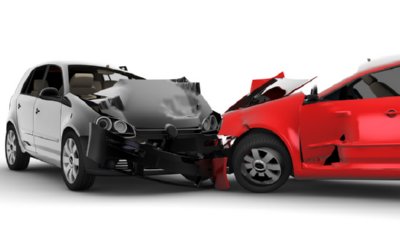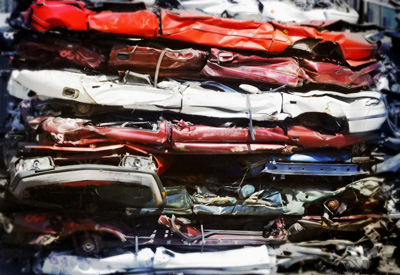If you’ve ever been unfortunate enough to have been involved in a car accident, chances are you’ve been informed by your car insurance provider your vehicle is a “write-off”. But what does the term “write-off” even mean?
Here at CarCliq, we define what a car insurance write-off is, discuss the reasons why cars get written off and what procedure the insurance company take with dealing with a write-off.
Here at CarCliq, we define what a car insurance write-off is, discuss the reasons why cars get written off and what procedure the insurance company take with dealing with a write-off.
 What is a car insurance write-off? This is a type of term used for a car that has been heavily damaged, therefore it is unable to be put back onto the road due to how unsafe it is. Or the other variation, is it’s still safe to drive – but beyond economical repair.
What is a car insurance write-off? This is a type of term used for a car that has been heavily damaged, therefore it is unable to be put back onto the road due to how unsafe it is. Or the other variation, is it’s still safe to drive – but beyond economical repair.In further detail, if your car has finally been given the verdict that it is unsafe to be on the road – instead of having money for repairs, insurance companies will instead give out a cash pay-out for the loss.
On the other hand, an uneconomical repair is based on a repair-to-value ratio, therefore this can vary on each insurance company and car; if a car was worth £5,000 and your insurance company used a repair-to-value ratio of 60%, the vehicle would be deemed as “beyond economical repair” if the work was to cost more than £3,000.
Car insurance providers employ vehicle assessors who have the duty of calculating the cost of repairs and make the final judgement.
Why do cars get insurance written-off? All insurance companies must work under a set of strict policies, with each having the responsibility to return a car to the condition it was in prior to the accident.
Although, this can turn into an expensive procedure according to what workshops and parts are needed to fix the car. This is where the role of the vehicle assessors come into play when they should factor in these calculations to decide if it is an uneconomical repair.
Car insurance write-off categories
Car insurance write-offs are ranked by car insurance assessors through various categories to describe the severity of accident damage.
Why do cars get insurance written-off? All insurance companies must work under a set of strict policies, with each having the responsibility to return a car to the condition it was in prior to the accident.
Although, this can turn into an expensive procedure according to what workshops and parts are needed to fix the car. This is where the role of the vehicle assessors come into play when they should factor in these calculations to decide if it is an uneconomical repair.
Car insurance write-off categories
Car insurance write-offs are ranked by car insurance assessors through various categories to describe the severity of accident damage.
- Category A: This is scrap only – cars that are so badly damaged, they need to be scrapped and even salvageable parts need to be destroyed.
- Category B: The body shell is crushed – the car is significantly damaged; however, some parts are salvageable. The car should never re-appear on the road, although the salvaged parts can be used in other road-going vehicles.
- Category S (formerly Category C): The car is structurally-damaged. This could include various things, such as a bent or twisted chassis, or a crumple zone that has collapsed in a crash. It is more than just cosmetic, thereby, the vehicle will need to be repaired and won’t be safe to drive until then.
- Category N (formerly Category D): The car hasn’t sustained any structural damage, so the issue may either be cosmetic or a problem with the electrics that isn’t economical. However, don’t assume the vehicle is drivable; non-structural faults can include brakes, steering or other safety-related parts.
 What does an insurance company do with a car insurance write-off? The ABI Salvage Code states that Category A and Category B cars need to be crushed, with the exception of Cat B cars that can donate some safe and serviceable parts.
What does an insurance company do with a car insurance write-off? The ABI Salvage Code states that Category A and Category B cars need to be crushed, with the exception of Cat B cars that can donate some safe and serviceable parts.Category S and N cars can be sold on by the insurance company – this can be to the original owner or a third party through a car salvage company. It’s important to note that if the car is ranked as Category S, it must have a Form V23* submitted by the insurer, self-insurer or agent to DVLA as soon as the categorisation decision is made and without waiting for the V5. The owner of the vehicle also holds the responsibility of notifying the DVLA when a vehicle is passed to an insurer following a total loss payment. Furtherly, no notifications are made to the DVLA or VOSA when a car is written off in a Category N situation.
Overall, when it comes to your daily commute, we want you to be safe and ensure you’re paying attention to all your surroundings. We also hope this guide has given you clarity of what a car insurance write-off is.
For more CarCliq guides click here
Want to lower your insurance premium? Click here
Get your car insurance quote here
For more CarCliq guides click here
Want to lower your insurance premium? Click here
Get your car insurance quote here